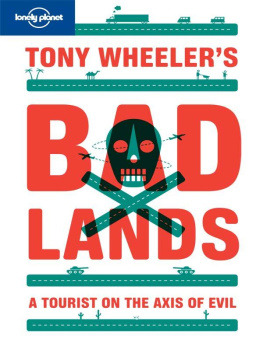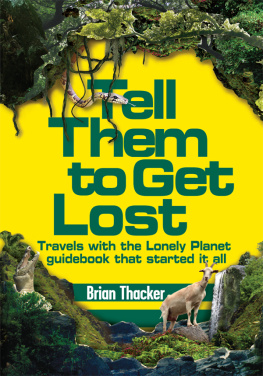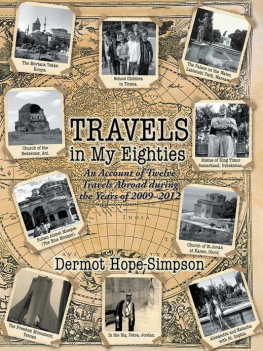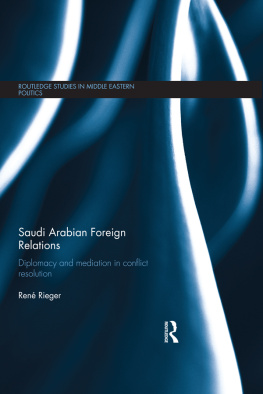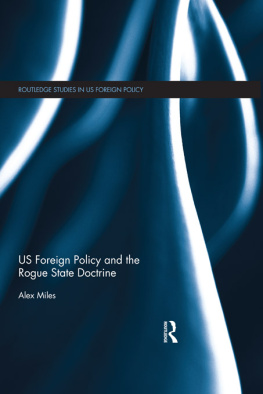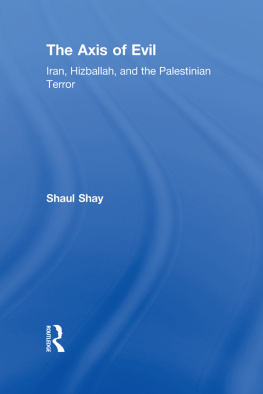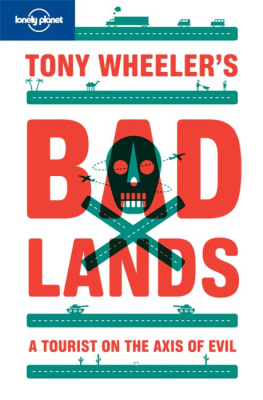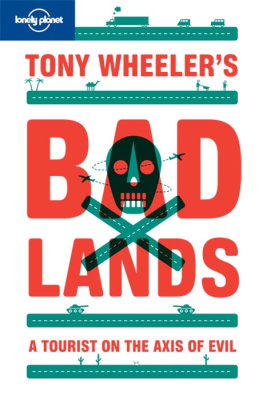Tony Wheeler was born in England, but grew up in Pakistan, the West Indies and the USA and has kept on travelling ever since. A trek along Asias hippy trail led him to write the very first Lonely Planet guidebook in 1973 and over the following years Tony has written or contributed substantially to more than 30 Lonely Planet titles. The New York Daily News has described Lonely Planet as the specialists in guiding weird folks to weird places and Tonys continued enthusiasm for the worlds weirder corners took him to the nine countries that feature in this book.
LONELY PLANET and the Lonely Planet logo are trademarks of Lonely Planet Publications Pty Ltd.
All rights reserved.
INTRODUCTION
WHAT MAKES A LAND BAD?
Its got nothing to do with geography or topography. Rivers dont invade, deserts dont become corrupt and, while terrorists may hide out in a countrys mountains and valleys, the land itself will have had nothing to do with why a Bad Land turned to the dark side. My travels through the Bad Lands took me through staggeringly impressive country from endless desert dunes to snow-capped mountain peaks, from winding rivers to tropical beaches but always in the background was the nagging realisation that these were countries that had gone wrong and that people, not nature, had made the wrong turns.
So while my travels do include a varied assortment of geographic and cultural marvels, its delving into history and politics, much of it very recent, that illuminates how each country achieved Bad Land status. I could not have asked for a better cast of characters medal-dripping dictator despots, fatally flawed national heroes, heroically doomed reformers, religious fanatics and Nobel Prize winners all played their part in the Bad Land stories. Genghis Khan, Mother Teresa, Osama bin Laden, Lawrence of Arabia and, of course, George W Bush all make appearances. The obsessive pursuit of power can also lead to some decidedly eccentric behaviour; for some Bad Land rulers, dressing up ranks second only to erecting statues and portraits in their personality-cult enthusiasms.
Of course, its not just the locals. One countrys terrorists are another countrys freedom fighters, and ill-thought-out measures to discourage terrorists can actually encourage them. We dont even have to fund them directly although some very respectable countries have done exactly that. For some countries, turning bad may be all their own work, but equally often outside influences from colonial meddling to big power-proxy struggles have played a disproportionate part in a Bad Lands sorry situation.
Ive been travelling for a long time. Although I was born in England, I lived in Pakistan until the age of five and did almost all my high-school years in the USA. Ive kept on travelling ever since, co-founding Lonely Planet Publications in the early 1970s, writing dozens of travel-related books and maintaining a keen interest in the worlds weirder places. Wheres your favourite place? Im often asked, and my honest answer is, The departure lounge.
On the ground, walking the streets, you quickly pick up whether a place is safe or dangerous, and often have a far better idea of how well the average person is doing than expert economists can glean from any number of GNP and GDP statistics, or international journalists from meeting with government officials and spokespeople after parachuting into a five-star hotel.
Im not the only person to feel that way. In an article in the Columbia Journalism Review in 2006, American writer Robert Kaplan commented that In the 1990s, when it was particularly hard to get visas to Iran and much of the information about that country emerged out of seminars in Washington the best thing to read on the subject was Iran: A Travel Survival Kit, by David St Vincent, published in the Lonely Planet series.
How did I choose my Bad Lands?
A country doesnt even need to be a fully fledged Bad Land to have some bad marks on its scorecard. Even nice little Switzerland has its bad side; if an evil dictator from a real Bad Land wants a place to stash his ill-gotten gains, the Swiss are only too happy to provide a secure, anonymous, no-questions-asked bank vault.
The selection criteria were simple enough: how does a country treat its own citizens? Is it involved in terrorism? Is it a threat to other countries? The Axis of Evil was an obvious starting point. Iran, Iraq and North Korea went straight on to my list. Then I added Burma (Myanmar) because its regularly cited as exhibiting appalling examples of human-rights abuses and its military government has kept a Nobel Prize winner locked up because she had the temerity to win an election. Cuba because the USA has been shouting for regime change there for over 50 years with a conspicuous lack of success. Libya because its done absolutely everything wrong oppressed its own citizens, funded and actually organised terrorism, worked on Weapons of Mass Destruction and even invaded a neighbouring state. And got away with it.
Afghanistan joins the list for harbouring the terrorist who can claim to be the biggest single factor in creating the War on Terrorism with which were all caught up, whether we want to be or not. Saudi Arabia went in as the place that bred lots of terrorists and, whats worse, rich terrorists by mismanaging things at home. Finally I threw in Albania, not because its a Bad Land at all anymore, but simply because its a fascinating example of a tiny, peculiar little dictatorship that cut itself off from the outside world at considerable cost to its own people.
So whats changed in the three years since this book was first published? Remarkably little. Afghanistan still teeters between relative calm in the west and the north, the odd suicide bombing and Taliban attack in Kabul, and a war zone in the south. The Karzai government continues to be less than convincing, but a trickle of tourists still arrives, and these days they even travel all the way across central Afghanistan.
In Burma the military generals make occasional encouraging noises, and then balance sense with nonsense by building a despised new capital city at Nay Pyi Taw in the centre of the country. Meanwhile Aung San Suu Kyi continues to languish under house arrest, another uprising was quashed with ferocity in 2007, and the disastrous Cyclone Nargis in 2008 gave the government the opportunity to prove, yet again, that they can score 10 out of 10 for oppression and economic incompetence, but zero when it comes to providing useful assistance to their people.
In Cuba, Fidel continues to pull the strings from his (long-running) death bed, while Obama promises to change the US attitude towards the Caribbean nation, but doesnt actually do very much. Yet, at least. In Iran, the general population proves, once again, that they want democratic change, and Iranian families head towards a fertility rate comparable to the most advanced Western nations while the Ayatollah continues to believe the calendar is stuck in the medieval era.
In neighbouring Iraq, the British have withdrawn completely and the American troop numbers head in the same direction, while the Iraqi government takes increasing control of its own destiny. Intrepid tourists continue to visit the northern Kurdistan region, but also start to head south to Baghdad and some of the other main attractions of the country. Nevertheless, nobody would claim that Iraq is a safe place to visit; random acts of extreme violence continue to erupt and the jury will be out for a long time yet on whether the 2003 invasion was a good idea. Whether the end result is a step forward or a step back is also yet to be decided.

